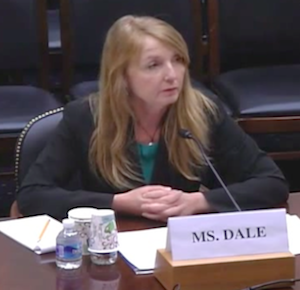BBG Watch Commentary

After years of dysfunction, U.S. international broadcasting might be headed for better times as new members of the Broadcasting Board of Governors (BBG) settled into their responsibilities at the monthly board meeting last Wednesday, Helle Dale, the Heritage Foundation’s Senior Fellow in Public Diplomacy studies, wrote in an article for The Foundry, the Heritage Foundation blog.
“The competition in global communication has intensified as has the challenges facing the U.S. from Islamist movements. Thankfully, the new board has a depth of expertise and understanding of communication, public diplomacy, and the Muslim world,” Helle Dale wrote.
In addition to the new BBG Chairman, Jeff Shell, the board has three other new members: Dr. Kenneth Weinstein, president and CEO of the Hudson Institute, Ambassador Ryan Crocker, former U.S. ambassador to Afghanistan, and Matt Armstrong, the former director of the U.S. Advisory Commission on Public Diplomacy.
Helle Dale quotes Dr. Kenneth Weinstein, the BBG’s newest board member:
“We in the United States face an unprecedented strategic competition on many levels, whether it would be in the Arab world, in Central Asia, Africa, Asia, Latin America. It has gotten more complicated thanks to the international media landscape, where we see a significant number of broadcast outlets that claim to be impartial and in some cases actually hire American journalists, but have a completely other agenda.”
Helle Dale reported that “a special committee on the creation of a chief executive officer position to oversee the day-to-day running of the $731 million enterprise that is U.S. international broadcasting.” This has been the duty of the part-time board since its creation in the 1990s, she noted.
She also noted that the BBG board “meets only once a month—sometimes not even that—and has for periods been without a quorum.”
